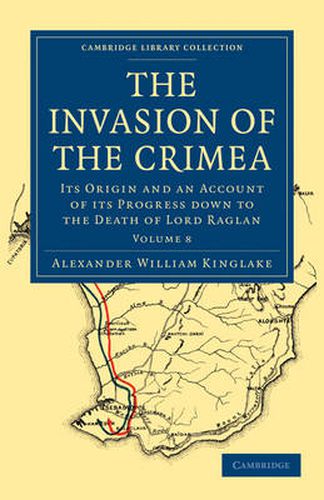Readings Newsletter
Become a Readings Member to make your shopping experience even easier.
Sign in or sign up for free!
You’re not far away from qualifying for FREE standard shipping within Australia
You’ve qualified for FREE standard shipping within Australia
The cart is loading…






Alexander William Kinglake (1809-1891) was a travel writer and historian. He witnessed the battle of the Alma and the Charge of the Light Brigade, and became well acquainted with the British commander, Lord Raglan. This work was commissioned by Lady Raglan to repair her husband’s reputation, and Kinglake was given access to Raglan’s papers, and to private and confidential state records. The eight volumes were published between 1863 and 1887. They were extremely successful commercially, but received mixed critical reviews, owing to the bias and prejudice shown by the author, and serious questions were raised about his use of the sources to which he was given exclusive access. However, the breadth of his research, corresponding with or interviewing participants in the war, and use of French, Turkish and Russian sources as well as British, gives lasting value to the work. Volume 8 ends with the death of Lord Raglan.
$9.00 standard shipping within Australia
FREE standard shipping within Australia for orders over $100.00
Express & International shipping calculated at checkout
Alexander William Kinglake (1809-1891) was a travel writer and historian. He witnessed the battle of the Alma and the Charge of the Light Brigade, and became well acquainted with the British commander, Lord Raglan. This work was commissioned by Lady Raglan to repair her husband’s reputation, and Kinglake was given access to Raglan’s papers, and to private and confidential state records. The eight volumes were published between 1863 and 1887. They were extremely successful commercially, but received mixed critical reviews, owing to the bias and prejudice shown by the author, and serious questions were raised about his use of the sources to which he was given exclusive access. However, the breadth of his research, corresponding with or interviewing participants in the war, and use of French, Turkish and Russian sources as well as British, gives lasting value to the work. Volume 8 ends with the death of Lord Raglan.